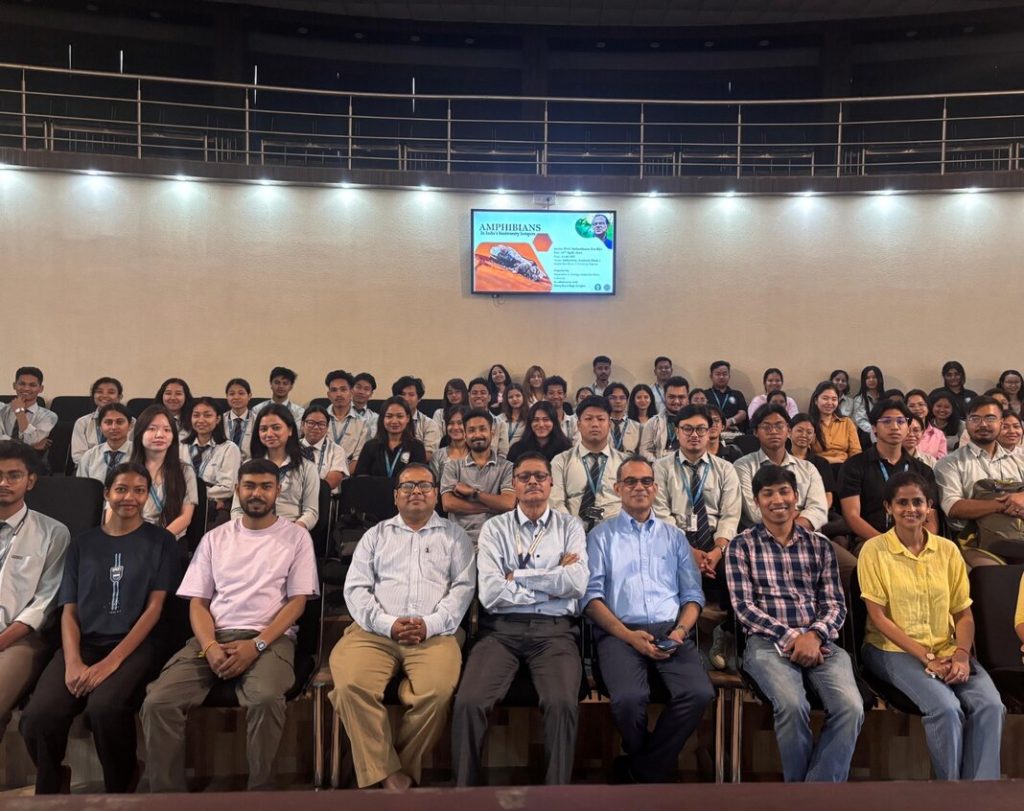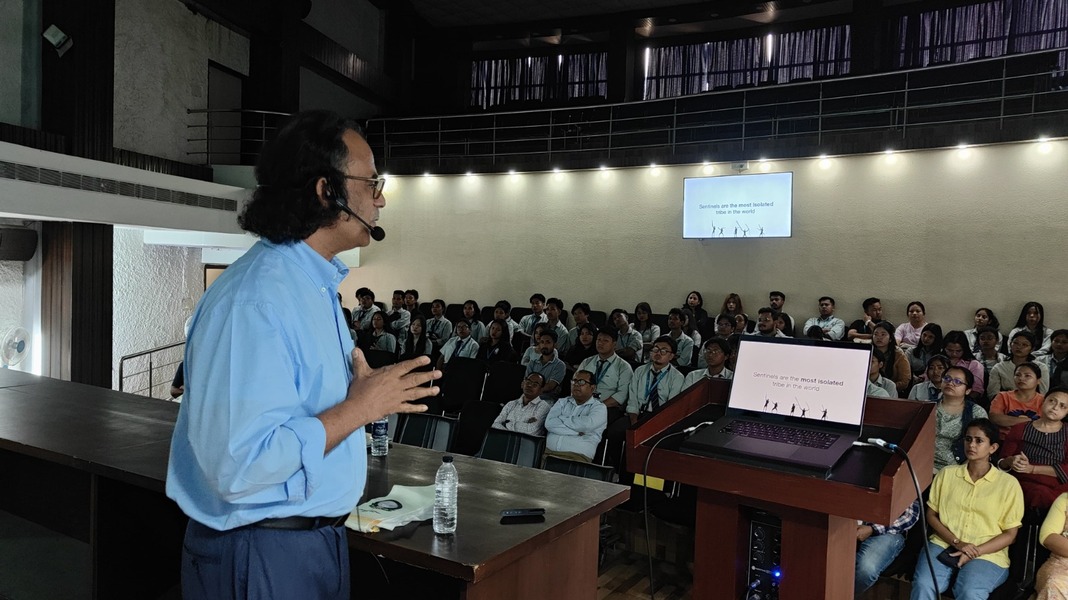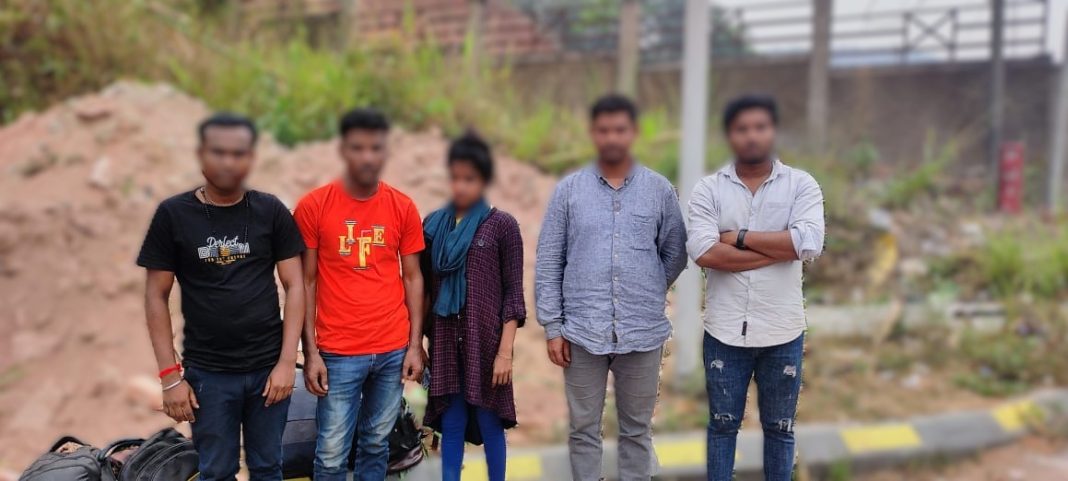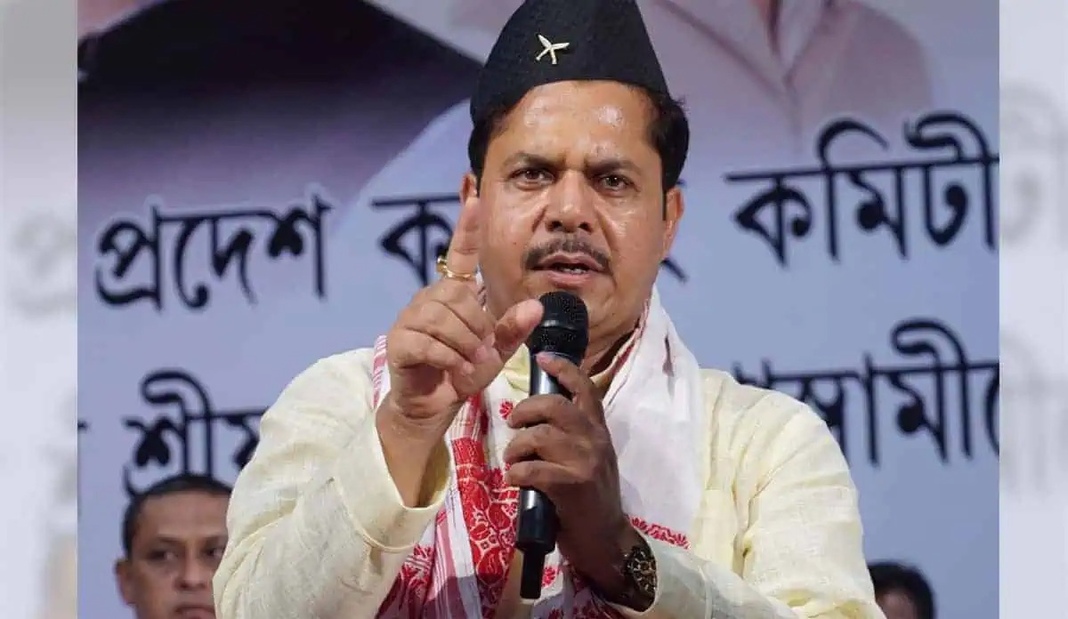
Guwahati, April 10: Assam Don Bosco University had a rare and inspiring visitor on Thursday—Professor Sathyabhama Das Biju, better known as the Frogman of India. A pioneering scientist and Senior Professor at the Department of Environmental Studies, University of Delhi, Dr. Biju is globally recognized for his groundbreaking work in amphibian research. He delivered a compelling lecture on “Amphibians in India’s Biodiversity Hotspots,” attracting a packed audience of students, research scholars, and faculty from across the region.
The session was part of a science outreach initiative to foster interest in field biology and conservation. Few people are more qualified to speak on the subject. With over 100 new amphibian species discoveries credited to his name, Dr. Biju has been instrumental in uncovering the hidden biodiversity of India’s forests, especially in the Western Ghats and the Northeastern hills.

During the lecture, Dr. Biju shared vivid stories from his fieldwork—trekking through dense rainforests, braving harsh terrain, and often working in isolation to find and document frog species previously unknown to science. His presentation painted a rich picture of India’s lesser-known wildlife and the ecological significance of amphibians, which often serve as indicators of environmental health.
“There is still so much we don’t know,” Dr. Biju told the audience. “India is a global biodiversity hotspot, but vast areas remain scientifically unexplored. The future of biodiversity research lies not in laboratories, but in the forests, hills, and wetlands waiting to be studied,” he added.
More than just a scientific talk, his message carried a deeper call to action. Dr. Biju urged young people to seriously consider careers in ecological exploration and conservation. He emphasized the urgent need to document and protect biodiversity in the face of climate change, deforestation, and rapid development.

“What you find in the field can change how we understand ecosystems—and maybe even how we save them,” he said, underscoring the power of persistence, curiosity, and purpose in field research.
The session concluded with a vibrant Q&A, with students eager to ask about research methods, field survival, and how to get involved in biodiversity science. For many, it was a moment of clarity—an encounter that could shape their academic and career paths.
Dr. Biju’s visit was more than a lecture—it was a spark. His presence at Assam Don Bosco University not only celebrated the wonders of amphibian life but also reinforced the idea that exploration and science are vital tools in the fight to preserve our natural world. As habitats face growing threats, his parting message was clear: the responsibility now lies with the next generation to step up, step out, and make discoveries that matter.





